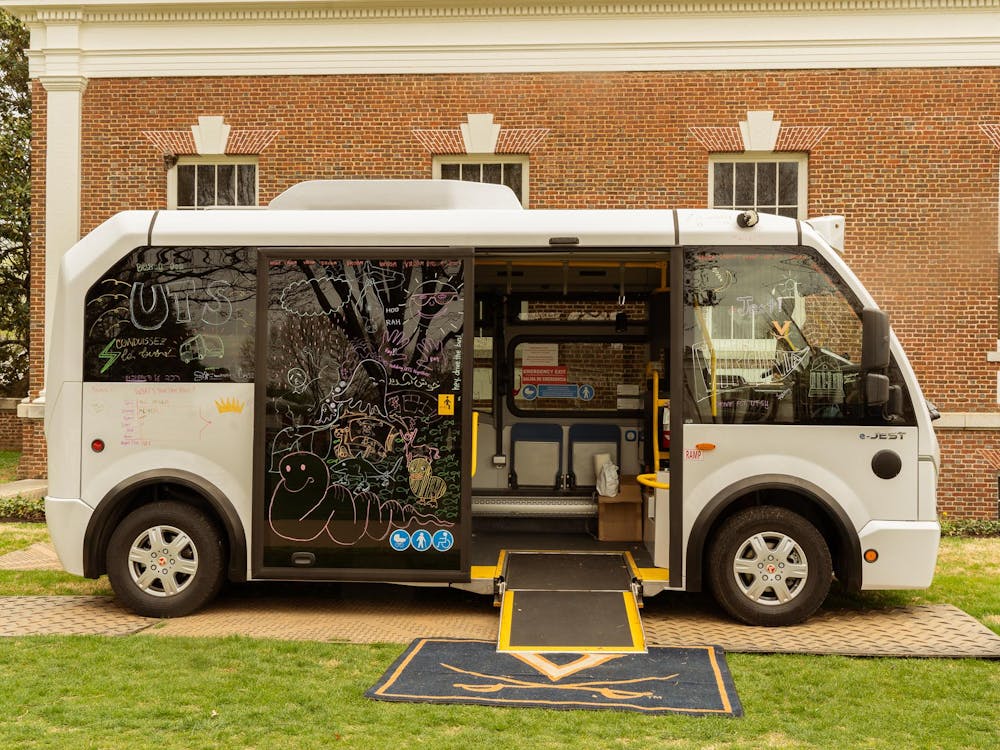droves of people moving to Charlottesville and Albemarle County in the last decade have created a booming local real estate market, and the University will not be left out.
University officials soon will begin selling parts of the 7,400 acres of Albemarle County farmland it received in May from billionaire and Metromedia Co. founder John W. Kluge. Although the University plans to preserve and maintain a core of 749 acres of the property, which includes historic Morven Farm, some Albemarle County residents worry that most of the land will be sold to developers who will turn the farms into sprawling subdivisions.
We "do not want to look out at this otherwise pristine agrarian setting and see a housing development," said Rossie Carter Hutcheson, a landowner near the Kluge property.
Most of the Kluge land currently is leased to farmers and residents, and Kluge still lives on about 1,240 acres of the property. The area is zoned as rural, the lowest density zone for the county, but that does not ensure that developers will not build subdivisions on the property. According to county zoning laws, subdivisions may be built in rural zones, but they must have a minimum of two acres per lot. The front yards must span 75 feet between public roads and houses.
Leonard Sandridge, University executive vice president and chief operating officer, said that because of the zoning laws, development of the properties would not dramatically change the countryside.
"Our expectation is that the look and feel of the area will not change, even if ownership [of the land] does," Sandridge said.
But residents were so worried last summer that they petitioned the University to put conservation easements on the land before selling it. Easements would have forced buyers to preserve the farmland. The Board of Visitors voted in June to sell the property without easements, however, because they estimated the easements would have reduced the value of the property by as much as 50 percent.

People will pay more if they can develop, University Rector John P. Ackerly told The Cavalier Daily in June. "The University wants to have good community relations, but we are obliged to get as much money as we can."
Some residents feel that developing the property could have negative effects for Albemarle County.
"It is too bad the University feels they must have top dollar for this piece of property instead of trying to retain the rural character of the surrounding farming areas and that they are not sensitive to the people in that area," Hutcheson said.
"I think also a lot of people think that the Board of Visitors primarily live in big urban areas and are not familiar with the concept that easements put on land can, in the long term, provide economic stimulus and security, which, of course, is our view of the situation," she said.
"A large proportion of the buyers who already have shown interest in the land plan to preserve the farmland as it now stands, said Tim Rose, director of the University of Virginia Foundation, which handles the sale of the property."
Rose said the fear that developers will build things like shopping malls is minimal, but they could erect new neighborhoods.
Ultimately, the University Foundation will decide which buyers are acceptable for the land, and the Albemarle County Board of Supervisors will enforce what the buyers do with it.
He said the 11.5-square-mile Kluge property, which is larger than the city of Charlottesville, is valued between $40 and $50 million, which breaks down to about $6,000 an acre. But it is impossible to tell how much the land actually would sell for. He added that he does not know how much of the land will be sold. The University may decide to keep more than the core property allotted for academic use after Kluge's death or departure.
Rose said the sale of some of the land will fund an endowment for keeping up the core property - an expensive task because of formal gardens and a large house located there. The rest of the profits will go toward academic programs at the farm.
Preliminary decisions about the academic purposes of the Kluge land will be made over the next year or so, Sandridge said.
President John T. Casteen III has asked University Provost Gene Block to head a planning committee for the core property.
"Later in the spring, faculty and staff members throughout the University will be invited to submit proposals for long-range projects they envision. The committee will review them and recommend which should be considered further," Sandridge said.
He added that all proposals must comply with the rural zoning laws, which will lessen the impact of construction and traffic on the surrounding area.
Kluge has been listed in Forbes Magazine as one of the richest people in America. He started Metromedia Co. in 1960, and the company became one of the nation's largest privately held companies.
He moved to Albemarle County in 1981 and bought Morven Farm in 1988. Casteen had been meeting with Kluge about the gift for four years.






